About the Journal
Focus and Scope
The Journal of Supercomputing Frontiers and Innovations (JSFI) is a peer-reviewed publication whose main goal is to widely disseminate the results of research and development findings and results at the leading edge of high-performance computing systems, highly parallel methods, and extreme scaled applications. This open access online international journal accepts high-quality articles, letters and reviews presenting recent advances and views in the important and rapidly developing field of supercomputers. JSFI complements other periodicals by providing a forum specifically targeted to supercomputing accomplishments through research, development, and application across the worldwide arena and at the leading edge of ideas and innovations. A strong editorial board ensures the highest standards of scholarship and quality while emphasizing short time to publication for greatest impact and accreditation. Focused topical issues are organized by special editors as the need and opportunity arise. JSFI is published quarterly, made available online, with limited copies distributed in hard copy for library and archival purposes. The journal does not charge the authors a publication fee.
Subject areas include, but are not limited to the following fields:
- Future generation supercomputer architectures
- Exascale computing
- Parallel programming models, interfaces, languages, libraries, and tools
- Supercomputer applications and algorithms
- Novel approaches to computing targeted to solve intractable problems
- Convergence of high performance computing, machine learning and big data technologies
- Distributed operating systems and virtualization for highly scalable computing
- Management, administration, and monitoring of supercomputer systems
- Mass storage systems, protocols, and allocation
- Power consumption minimization for supercomputing systems
- Resilience, reliability, and fault tolerance for future generation highly parallel computing systems
- Scientific visualization in supercomputing environments
- Education in high performance computing and computational science
Peer Review Process
The journal uses single-blind peer review model. Articles submitted in JSFI are sent out to peer reviewers, although submissions that are out of scope for the journal or are of an unacceptably low standard may be rejected without review. Potentially suitable manuscripts will generally be reviewed by at least three experts in the field with the aim of reaching a first decision as soon as possible. Reviewers are asked to declare their conflicting interests, if any.
Open Access Policy
This journal provides immediate and free of charge open access to its content on the principle that making research freely available to the public supports a greater global exchange of knowledge. The publication in articles appearing in the journal are also free of charge for the authors. JSFI is listed in DOAJ (Directory of Open Access Journals).
Editors-in-Chief Foreword

Jack Dongarra
University of Tennessee
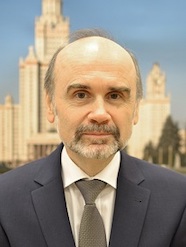
Vladimir Voevodin
Moscow State University
Parallel scientific computing has entered a new era. Multicore processors on desktop computers make parallel computing a fundamental skill required by all computer scientists. High-end systems have surpassed the Petaflop barrier, and significant efforts are devoted to the development of the next generation of hardware and software technologies towards Exascale systems. This is an exciting time for computing as we begin the journey on the road to exascale computing. ‘Going to the exascale’ will mean radical changes in computing architecture, software, and algorithms – basically, vastly increasing the levels of parallelism to the point of billions of threads working in tandem – which will force radical changes in how hardware is designed and how we go about solving problems. There are many computational and technical challenges ahead that must be overcome. The challenges are great, different than the current set of challenges, and exciting research problems await us.
This journal, Supercomputing Frontiers and Innovations, gives an introduction to the area of innovative supercomputing technologies, prospective architectures, scalable and highly parallel algorithms, languages, data analytics, issues related to computational co-design, and cross-cutting HPC issues as well as papers on supercomputing education and massively parallel computing applications in science and industry.
This journal provides immediate open access to its content on the principle that making research freely available to the public supports a greater global exchange of knowledge. We hope you find this journal timely, interesting, and informative. We welcome your contributions, suggestions, and improvements to this new journal. Please join us in making this exciting new venture a success. We hope you will find Supercomputing Frontiers and Innovations an ideal venue for the publication of your team’s next exciting results.
Publishing Ethics
JSFI is committed to upholding the integrity of the academic record. The journal follows the Committee on Publication Ethics (COPE) guidelines on how to deal with potential acts of misconduct.
During the publishing process authors should consider the following ethical responsibilities:
- The article has not been submitted to other journal(s) for simultaneous consideration.
- The article has not been published previously (partly or in full), unless the new work is devoted to an expansion of previous work (in this case author should provide transparency on the re-use of material to avoid the self-plagiarism).
- An atomic study is not divided into small parts to increase the number of submissions.
- The article does not use fabricated or manipulated data (raw numbers, graphs, images, etc.) to meet author’s conclusions.
- The article describes author's original work, and if the author has used the work and/or words of others, this has been appropriately cited or quoted to avoid plagiarism. The journal may use software to check the article for plagiarism.
- When the article is found to have plagiarised other work or included third-party copyright material without permission or with insufficient acknowledgement, or where the authorship of the article is contested, the journal reserves the right to take action including, but not limited to:
- if the article is still under consideration, it may be rejected and returned to the author;
- if the article has already been published online, either an erratum will be placed with the article or (in severe case) ``retraction'' watermark in the article will occur;
- the author's institution and/or relevant academic societies may be informed.
Editorial Board
Editors-in-Chief:
- Jack Dongarra, University of Tennessee, Knoxville, USA
- Vladimir Voevodin, Moscow State University, Russia
Editorial Director:
- Leonid Sokolinsky, South Ural State University, Chelyabinsk, Russia
Associate Editors:
- Pete Beckman, Argonne National Laboratory, USA
- Arndt Bode, Leibniz Supercomputing Centre, Germany
- Boris Chetverushkin, Keldysh Institute of Applied Mathematics, RAS, Russia
- Alok Choudhary, Northwestern University, Evanston, USA
- Alexei Khokhlov, Moscow State University, Russia
- Thomas Lippert, Jülich Supercomputing Center, Germany
- Satoshi Matsuoka, Tokyo Institute of Technology, Japan
- Mark Parsons, EPCC, United Kingdom
- Thomas Sterling, CREST, Indiana University, USA
- Mateo Valero, Barcelona Supercomputing Center, Spain
Subject Area Editors:
- Artur Andrzejak, Heidelberg University, Germany
- Rosa M. Badia, Barcelona Supercomputing Center, Spain
- Franck Cappello, Argonne National Laboratory, USA
- Barbara Chapman, University of Houston, USA
- Yuefan Deng, Stony Brook University, USA
- Ian Foster, Argonne National Laboratory and University of Chicago, USA
- Geoffrey Fox, Indiana University, USA
- William Gropp, University of Illinois at Urbana-Champaign, USA
- Erik Hagersten, Uppsala University, Sweden
- Michael Heroux, Sandia National Laboratories, USA
- Torsten Hoefler, Swiss Federal Institute of Technology, Switzerland
- Yutaka Ishikawa, AICS RIKEN, Japan
- David Keyes, King Abdullah University of Science and Technology, Saudi Arabia
- William Kramer, University of Illinois at Urbana-Champaign, USA
- Jesus Labarta, Barcelona Supercomputing Center, Spain
- Alexey Lastovetsky, University College Dublin, Ireland
- Yutong Lu, National University of Defense Technology, China
- Bob Lucas, University of Southern California, USA
- Thomas Ludwig, German Climate Computing Center, Germany
- Daniel Mallmann, Jülich Supercomputing Centre, Germany
- Bernd Mohr, Jülich Supercomputing Centre, Germany
- Onur Mutlu, Carnegie Mellon University, USA
- Wolfgang Nagel, TU Dresden ZIH, Germany
- Alexander Nemukhin, Moscow State University, Russia
- Edward Seidel, National Center for Supercomputing Applications, USA
- John Shalf, Lawrence Berkeley National Laboratory, USA
- Rick Stevens, Argonne National Laboratory, USA
- Vladimir Sulimov, Moscow State University, Russia
- William Tang, Princeton University, USA
- Michela Taufer, University of Delaware, USA
- Andrei Tchernykh, CICESE Research Center, Mexico
- Alexander Tikhonravov, Moscow State University, Russia
- Eugene Tyrtyshnikov, Institute of Numerical Mathematics, RAS, Russia
- Roman Wyrzykowski, Czestochowa University of Technology, Poland
- Mikhail Yakobovskiy, Keldysh Institute of Applied Mathematics, RAS, Russia
Technical Editors:
- Andrey Goglachev, South Ural State University, Chelyabinsk, Russia
- Yana Kraeva, South Ural State University, Chelyabinsk, Russia
- Dmitry Nikitenko, Moscow State University, Moscow, Russia
- Mikhail Zymbler, South Ural State University, Chelyabinsk, Russia
Contacts
|
Editor-in-Chief
|
Editor-in-Chief
|
Editorial Director
|
Technical Editor |
Editors-In-Chief
  |
Jack Dongarra, University of Tennessee, Knoxville, USA Scopus ID: 7102112094 Jack Dongarra received a Bachelor of Science in Mathematics from Chicago State University in 1972 and a Master of Science in Computer Science from the Illinois Institute of Technology in 1973. He received his Ph.D. in Applied Mathematics from the University of New Mexico in 1980. He worked at the Argonne National Laboratory until 1989, becoming a senior scientist. He now holds an appointment as University Distinguished Professor of Computer Science in the Electrical Engineering and Computer Science Department at the University of Tennessee and holds the title of Distinguished Research Staff in the Computer Science and Mathematics Division at Oak Ridge National Laboratory (ORNL); Turing Fellow at Manchester University; an Adjunct Professor in the Computer Science Department at Rice University; and a Faculty Fellow of the Texas A&M University's Institute for Advanced Study. He is the director of the Innovative Computing Laboratory at the University of Tennessee. He is also the director of the Center for Information Technology Research at the University of Tennessee which coordinates and facilitates IT research efforts at the University. |
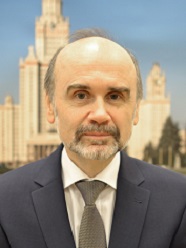  |
Vladimir Voevodin, Moscow State University, Russia Scopus ID: 7005332282 Vladimir Voevodin is Deputy Director of the Research Computing Center at Lomonosov Moscow State University. He is Head of the Department “Supercomputers and Quantum Informatics” at the Computational Mathematics and Cybernetics Faculty of MSU, professor, corresponding member of Russian academy of sciences. |
Editorial Director
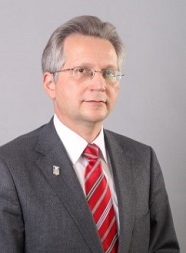 |
Leonid Sokolinsky, South Ural State University, Chelyabinsk, Russia Scopus ID: 6506818504
|
Associate Editors
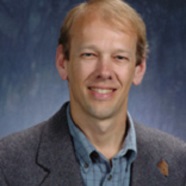 |
Pete Beckman, Argonne National Laboratory, USA Scopus ID: 7004731470 |
 |
Arndt Bode, Leibniz Supercomputing Centre, Germany Scopus ID: 56113141300 |
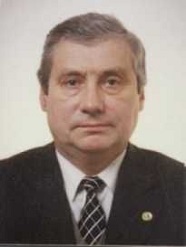  |
Boris Chetverushkin, Keldysh Institute of Applied Mathematics, RAS, Russia Scopus ID: 6701664800 |
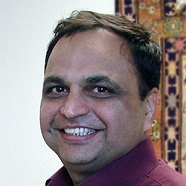 |
Alok Choudhary, Northwestern University, Evanston, USA Scopus ID: 24297881400 |
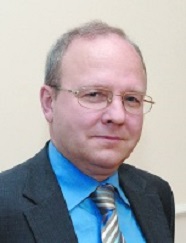 |
Alexei Khokhlov, Moscow State University, Russia Scopus ID: 7201745735 |
 |
Thomas Lippert, Jülich Supercomputing Center, Germany Scopus ID: 56336182900 |
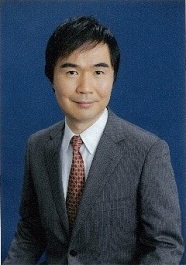 |
Satoshi Matsuoka, Tokyo Institute of Technology, Japan Scopus ID: 55731216300 |
 |
Mark Parsons, EPCC, United Kingdom Scopus ID: 35314964800 |
 |
Thomas Sterling, CREST, Indiana University, USA Scopus ID: 7103045295 |
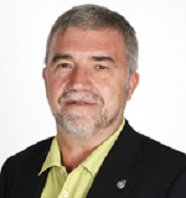 |
Mateo Valero, Barcelona Supercomputing Center, Spain Scopus ID: 24475914200 |
Subject Area Editors
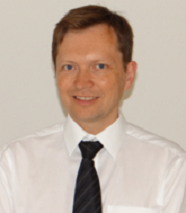  |
Artur Andrzejak, Heidelberg University, Germany Scopus ID: 6602719342 |
 |
Rosa M. Badia, Barcelona Supercomputing Center, Spain Scopus ID: 6603994224
|
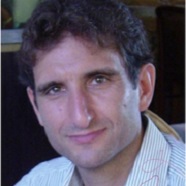 |
Franck Cappello, Argonne National Laboratory, USA
|
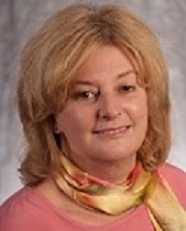 |
Barbara Chapman, University of Houston, USA
|
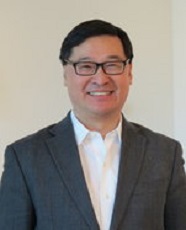 |
Yuefan Deng, Stony Brook University, USA
|
 |
Ian Foster, Argonne National Laboratory and University of Chicago, USA Scopus ID: 35572232000 |
 |
Geoffrey Fox, Indiana University, USA Scopus ID: 54585199000 |
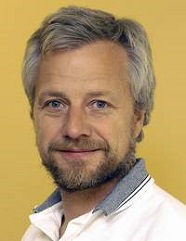 |
Erik Hagersten, Uppsala University, Sweden Scopus ID: 6602369729 |
 |
William Gropp, University of Illinois at Urbana-Champaign, USA Scopus ID: 7003297187 |
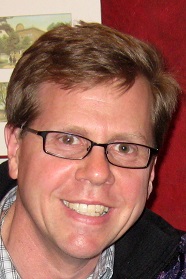 |
Michael Heroux, Sandia National Laboratories, USA Scopus ID: 6603596744 |
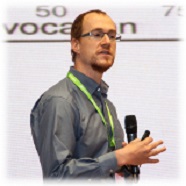 |
Torsten Hoefler, Swiss Federal Institute of Technology, Switzerland Scopus ID: 14018121700 |
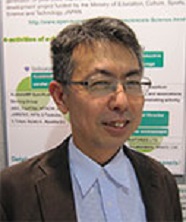 |
Yutaka Ishikawa, AICS RIKEN, Japan Scopus ID: 35253854700 |
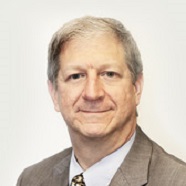  |
David Keyes, King Abdullah University of Science and Technology, Saudi Arabia Scopus ID: 20433556100 |
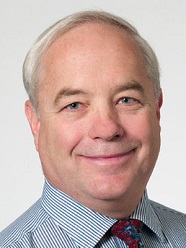  |
William Kramer, University of Illinois at Urbana-Champaign, USA Scopus ID: 14632137500 |
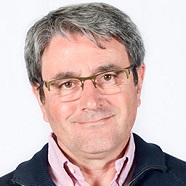 |
Jesus Labarta, Barcelona Supercomputing Center, Spain Scopus ID: 56256013400
|
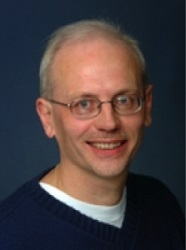 |
Alexey Lastovetsky, University College Dublin, Ireland Scopus ID: 6603071123 |
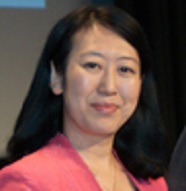 |
Yutong Lu, National University of Defense Technology, China Scopus ID: 56174806000 |
 |
Bob Lucas, University of Southern California, USA Scopus ID: 13003969700 |
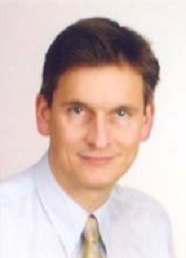 |
Thomas Ludwig, German Climate Computing Center, Germany Scopus ID: 7007149375 |
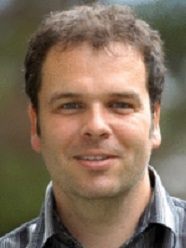 |
Daniel Mallmann, Jülich Supercomputing Centre, Germany Scopus ID: 15769624900 |
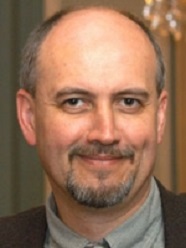 |
Bernd Mohr, Jülich Supercomputing Centre, Germany Scopus ID: 7006345587 |
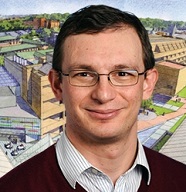 |
Onur Mutlu, Carnegie Mellon University, USA Scopus ID: 16043006700
|
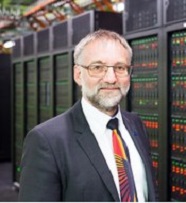 |
Wolfgang Nagel, TU Dresden ZIH, Germany Scopus ID: 9435404200 |
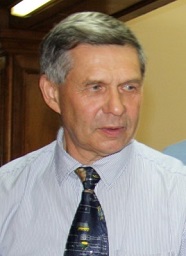 |
Alexander Nemukhin, Moscow State University, Russia Scopus ID: 7005907645 |
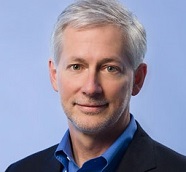 |
Edward Seidel, National Center for Supercomputing Applications, USA Scopus ID: 7102680682 |
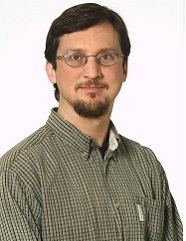 |
John Shalf, Lawrence Berkeley National Laboratory, USA Scopus ID: 6602158124 |
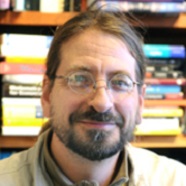 |
Rick Stevens, Argonne National Laboratory, USA Scopus ID: 7403202225 |
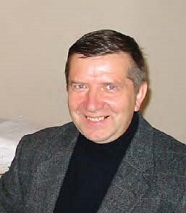 |
Vladimir Sulimov, Moscow State University, Russia Scopus ID: 7006306236 |
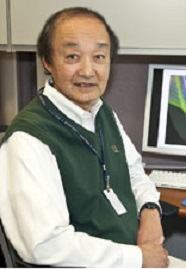 |
William Tang, Princeton University, USA Scopus ID: 7403430841 |
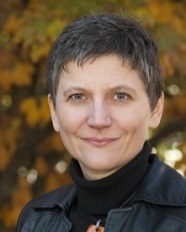 |
Michela Taufer, University of Delaware, USA Scopus ID: 9734576100 |
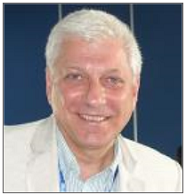 |
Andrey Tchernykh, CICESE Research Center, Mexico Scopus ID: 6506067984 |
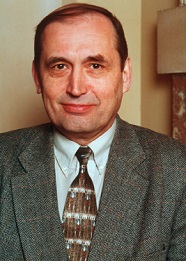 |
Alexander Tikhonravov, Moscow State University, Russia Scopus ID: 7006577745 |
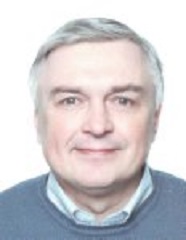  |
Eugene Tyrtyshnikov, Institute of Numerical Mathematics, RAS, Russia Scopus ID: 7004588388 |
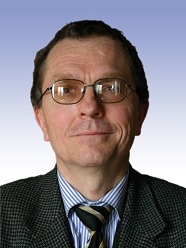 |
Roman Wyrzykowski, Czestochowa University of Technology, Poland Scopus ID: 57193262070 |
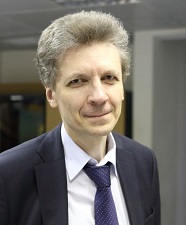 |
Mikhail Yakobovskiy, Keldysh Institute of Applied Mathematics, RAS, Russia Scopus ID: 57063571100 |
Journal Publisher
JSFI is published by the Publishing Center of the South Ural State University.
Address: 454080, Lenin prospekt, 76, Chelyabinsk, Russia
E-mail: izdat@susu.ru
